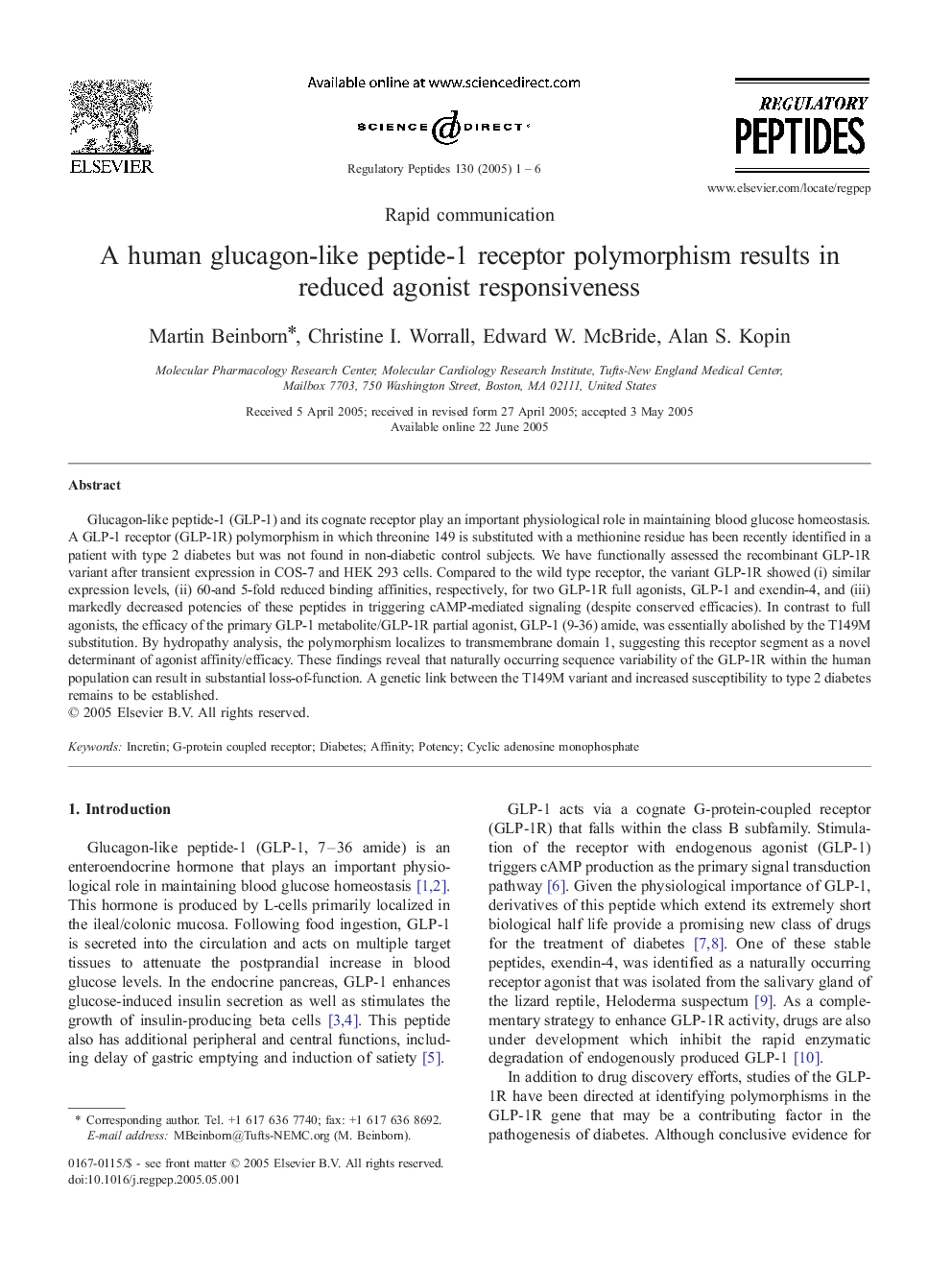| کد مقاله | کد نشریه | سال انتشار | مقاله انگلیسی | نسخه تمام متن |
|---|---|---|---|---|
| 9894384 | 1542457 | 2005 | 6 صفحه PDF | دانلود رایگان |
عنوان انگلیسی مقاله ISI
A human glucagon-like peptide-1 receptor polymorphism results in reduced agonist responsiveness
دانلود مقاله + سفارش ترجمه
دانلود مقاله ISI انگلیسی
رایگان برای ایرانیان
کلمات کلیدی
موضوعات مرتبط
علوم زیستی و بیوفناوری
بیوشیمی، ژنتیک و زیست شناسی مولکولی
زیست شیمی
پیش نمایش صفحه اول مقاله

چکیده انگلیسی
Glucagon-like peptide-1 (GLP-1) and its cognate receptor play an important physiological role in maintaining blood glucose homeostasis. A GLP-1 receptor (GLP-1R) polymorphism in which threonine 149 is substituted with a methionine residue has been recently identified in a patient with type 2 diabetes but was not found in non-diabetic control subjects. We have functionally assessed the recombinant GLP-1R variant after transient expression in COS-7 and HEK 293 cells. Compared to the wild type receptor, the variant GLP-1R showed (i) similar expression levels, (ii) 60-and 5-fold reduced binding affinities, respectively, for two GLP-1R full agonists, GLP-1 and exendin-4, and (iii) markedly decreased potencies of these peptides in triggering cAMP-mediated signaling (despite conserved efficacies). In contrast to full agonists, the efficacy of the primary GLP-1 metabolite/GLP-1R partial agonist, GLP-1 (9-36) amide, was essentially abolished by the T149M substitution. By hydropathy analysis, the polymorphism localizes to transmembrane domain 1, suggesting this receptor segment as a novel determinant of agonist affinity/efficacy. These findings reveal that naturally occurring sequence variability of the GLP-1R within the human population can result in substantial loss-of-function. A genetic link between the T149M variant and increased susceptibility to type 2 diabetes remains to be established.
ناشر
Database: Elsevier - ScienceDirect (ساینس دایرکت)
Journal: Regulatory Peptides - Volume 130, Issues 1â2, 15 August 2005, Pages 1-6
Journal: Regulatory Peptides - Volume 130, Issues 1â2, 15 August 2005, Pages 1-6
نویسندگان
Martin Beinborn, Christine I. Worrall, Edward W. McBride, Alan S. Kopin,